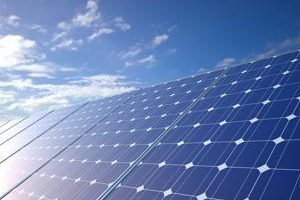
The rise in global awareness of sustainable energy solutions has led to an increased interest in solar panels. But, when does this investment start to pay off? We delve into this intriguing question, using a case study to illuminate the potential benefits.
Initial investment and longevity
Solar panels are a long-term commitment. The time it takes for them to recoup their cost through electricity savings, also known as the break-even period, hinges on various elements. These range from the system's initial price, its lifespan, prevailing utility rates, available tax incentives and your household's energy usage.
A real-life example
Take, for instance, a homeowner in Denmark who invested $16,000 (USD) in a 4 kW solar panel system. This setup generated an average of 3,750 kWh annually over a period of ten years. Factoring in local energy rates, consumption and resale value, the return on investment (ROI) for this solar system took roughly 12 years. Given an expected lifespan of 30 years or more for the panels, this means nearly two decades of free electricity, marking the investment as profitable.
Reduced costs and EV integration
It's important to note that solar panel costs have plummeted over the past ten years. Now, a similar setup could cost between $8,000 and $11,000, shrinking the break-even time significantly.
Furthermore, the introduction of an electric vehicle (EV) into the mix can tilt the scales favourably. While EVs do increase electricity usage, they can also use solar-generated energy without affecting cost savings. The householder was able to balance the extra electricity consumption by charging the EV during peak solar production times.
Regulatory impact and the viability of solar panels
Pricing and regulatory landscapes also play a role in solar panel viability. For instance, Denmark's grid electricity is much costlier than the remuneration homeowners receive for selling excess electricity back to it. This difference encourages property owners to use, rather than sell, their solar-generated electricity, making battery storage or an EV a valuable addition for leveraging surplus energy.
Making solar panels worth it
To sum up, the 'worth' of solar panels depends on a multitude of factors, including initial costs, system lifespan, local utility rates and personal energy usage. While calculating the exact ROI can be a complex, evolving task, trends indicate that solar panels are likely a worthwhile investment in the long run.
With careful planning and a long-term perspective, solar panels can become a wise investment for many homeowners.
Get in touch with WMC Accounting for expert advice on saving money and making smart, cost-efficient decisions tailored to your unique circumstances. Our team is equipped with the financial understanding to help you capitalise on opportunities and maximise your financial health.



